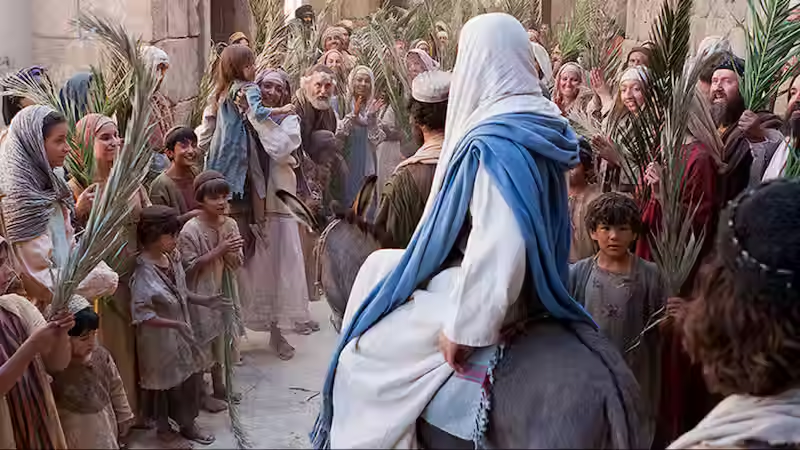Remember the Sabbath Day: Restoring the Sacred Purpose of Yahweh’s Appointed Time
- carl1jimenez
- Jun 6
- 6 min read

The Sabbath (Heb. Shabbat) is one of the most sacred institutions given by Yahweh to mankind, established not by tradition or culture, but by divine ordinance at creation. Long before there was a nation of Yisra’el, a Levitical priesthood, or Rabbinic tradition, Yahweh sanctified the seventh day as a holy convocation (Gen. 2:2–3). However, over centuries, human interference, particularly through the Pharisaic "fence laws", distorted the simple, life-giving purpose of the Sabbath. Let us explores what the Sabbath was meant for, how it was corrupted, and how we are to honor it today in accordance with Yahweh’s original design, not through burdensome traditions, but through covenant obedience and spiritual renewal.
I. The Sabbath in Creation: A Covenant of Rest and Relationship
In Bereshith (Genesis) 2:2–3, we read:
“And on the seventh day Elohim completed His work which He had done, and He rested on the seventh day from all His work which He had made. And Elohim blessed the seventh day and set it apart, because on it He rested from all His work which Elohim in creating had made.”
From the beginning, the Sabbath was not about legalism or ritualism, but about relationship. It was the first thing Yahweh ever blessed and set apart. It was meant to be a weekly reminder of creation, of Yahweh’s sovereignty, and of our need to cease from our own labors and enter into His rest.
Later, in Shemoth (Exodus) 20:8–11, the Sabbath is enshrined in the Ten Commandments, not as a new institution, but as a memorial of something already established. A reminder to the children of Yisra'el who had been enslaved and had no day of rest. It is a sign between Yahweh and His people forever (Exo. 31:16–17), a perpetual covenant and a test of loyalty to His Name and Word.
II. The Corruption of the Sabbath: The Fence Around Torah
While the Torah gave clear, straightforward commands about the Sabbath (no work, no kindling fire, no buying or selling, no gathering of manna), it never made the Sabbath a burden. However, by the time of Yahshua the Messiah, the Sabbath had become oppressive through Rabbinic additions, particularly those added by the Pharisees.
The “fence around the Torah” was a legal system designed by the Scribes and Pharisees to “protect” the commandments by adding layers of regulations. While this may have started with good intentions, it ultimately nullified the simplicity and joy of Yahweh’s commandments.
For example, by Yahshua’s time, 39 categories of prohibited work (melakhot) were codified by Rabbinic tradition. These included things such as tying knots, writing two letters, or even carrying something in public, none of which were part of the original command. Yahshua directly challenged these traditions:
“You nullify the command of Elohim by your tradition” (Mark 7:9).
Yahshua was not breaking the Sabbath, He was restoring it.
III. Yahshua the Messiah and the True Meaning of the Sabbath
Yahshua never violated the Sabbath; instead, He corrected the distortions introduced by religious leaders. He declared:
“The Sabbath was made for man, not man for the Sabbath” (Mark 2:27).
This means the Sabbath is a gift, not a yoke. Yahshua healed on the Sabbath, allowed His disciples to pluck heads of grain, and rebuked the Pharisees for their hypocrisy. He reminded them of David eating the showbread, of the priests working in the Temple, and most importantly, that He is Master of the Sabbath (Mark 2:28).
Yahshua did not come to abolish the Torah (Matt. 5:17–19), but to fulfill, that is, to live it out perfectly and teach its true intent. He showed that doing good on the Sabbath is not only allowed but is lawful (Matt. 12:12).
IV. The Sabbath Today: Not Judaism, but Obedience
Modern Judaism continues to keep the Sabbath, but in the form of Talmudic tradition, not Torah obedience. On the other hand, modern Christianity has rejected the Sabbath altogether, embracing Sun-day worship, a practice rooted in Roman tradition, not Scripture.
Neither path is faithful to Yahweh.
The Sabbath was never a “Jewish law” — it was given to Adam, it was given to mankind, observed by the patriarchs, and commanded for all Yisra’el, including the sojourners who joined themselves to the covenant (Isa. 56:6–7).
To honor the Sabbath today means:
Ceasing from all secular labor from sunset Friday to sunset Saturday (Lev. 23:32).
Refraining from buying, selling, kindling fire, or carrying burdens (Neh. 13:15–22; Ex. 16:29).
Gathering for a set-apart convocation (Lev. 23:3).
Using the day for prayer, study, worship, and delighting in Yahweh (Isa. 58:13–14).
Leading your household in rest and sanctification, modeling it for future generations (Deut. 5:12–15).
The Sabbath is not a restriction, but a recalibration, a weekly return to the rhythm of Yahweh’s order.
V. The Sabbath Today: Returning to Yahweh’s Intent in a Modern World
Now that we understand what the Sabbath is and what it is not, we must ask: How do we honor it today in a world filled with electricity, smartphones, fast food, and social media?
Some say you cannot turn on a light. Others forbid using your phone or watching any kind of screen. Some say you can’t even run the air conditioner. But these are Rabbinic-style additions, not Torah commands.
Let’s return to what Yahweh actually commanded, and then walk in it with wisdom and balance.
What Yahweh Commanded
Cease from occupational work “Six days shall you labor... but the seventh is a Sabbath to Yahweh your Elohim. In it you shall not do any work…”(Exodus 20:9–10)
No kindling of fire for labor “You shall kindle no fire throughout your dwellings on the Sabbath day.” (Exodus 35:3)
No buying or selling (Nehemiah 13:15–22)
Set the day apart for worship, fellowship, and rest
What the Pharisees Added
Prohibiting the healing of the sick
Counting steps and limiting movement
Forbidding carrying objects or lighting oil lamps
Labeling actions like tearing paper or turning a knob as "work"
Teaching that even joy was a violation if it felt too active
Yahshua rejected this form of religion. He taught that the Sabbath was made for man, not man for the Sabbath.
What About Modern Life?
Let’s answer some modern concerns without falling into legalism, while remaining faithful.
Permissible and Aligned with Torah:
Using lights, fans, and air conditioners for comfort
Reheating food that was prepared before sunset
Using your phone or computer for Scripture, teaching, fellowship, music
Driving to a congregation or gathering of believers
Reading, resting, fellowshipping, and even enjoying creation
What to Avoid:
Working your job or earning profit
Engaging others in labor (e.g., ordering food, paying for services)
Watching carnal entertainment: TV, sports, or profane media
Shopping, either in-store or online
Using devices as tools for distraction or vanity
A Day of Delight — Not Restriction
“If you turn away your foot from the Sabbath, from doing your pleasure on My set-apart day, and call the Sabbath a delight... then you shall delight yourself in Yahweh.”(Yeshayahu / Isaiah 58:13–14)
Yahweh never intended for His Sabbath to be a day of silence, fear, or cold darkness. It is a gift, a prophetic shadow of the Kingdom to come (Hebrews 4:9). It is not about mechanical rules, but about reorientation.
If something helps you rest and draw near to Yahweh, it serves the Sabbath. If something distracts, pollutes, or causes others to labor, it violates the Sabbath.
The Sabbath is not a relic of ancient Judaism, nor is it a burdensome law nailed to a cross, it is an eternal sign, a gift of rest, a time of communion with Yahweh and family. It was corrupted by religious fences and forgotten by modern Christianity, but it still stands.
The Pharisees corrupted it through their traditions. Christianity abandoned it under Roman influence. But Yahweh is calling His people back to it, to remember the day He sanctified, the commandment He never revoked.
As it is written:
“Blessed is the man… who keeps the Sabbath without defiling it, and keeps his hand from doing any evil.” (Yeshayahu / Isaiah 56:2)
Let us return, not to Rabbinic Judaism or Roman Christianity, but to Yahweh’s original command. The Sabbath was made for man. Let us embrace it as the sacred covenant it is.
By: Carlos Jimenez



Comments